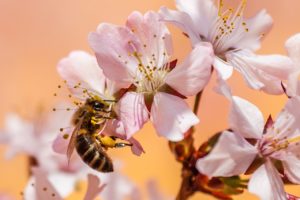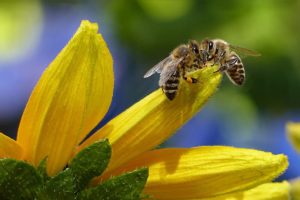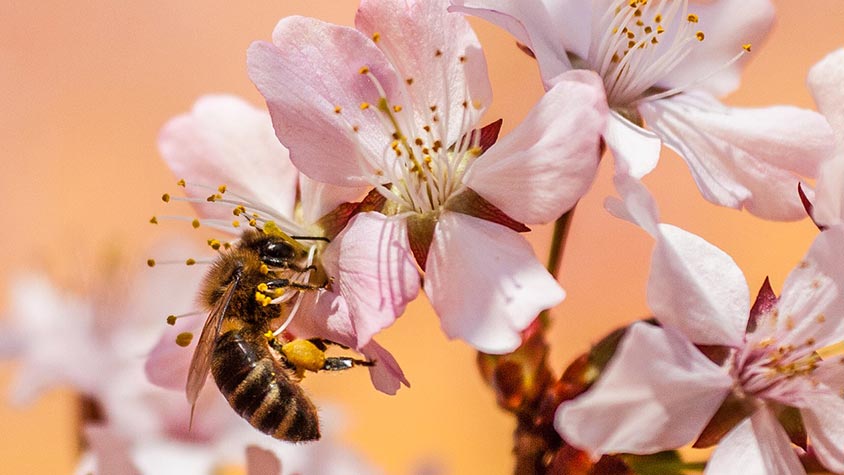Neonicotinoids are a group of insecticides chemically related to nicotine. The name literally means “new nicotine-like insecticides” because as the nicotine does, neonicotinoids act on certain kinds of receptors in the nerve synapse. They are widely used on an extensive variety of farm crops and in ornamental landscape plants. They are absorbed and transferred through the plant’s vascular system in pollen and nectar, making them toxic for insects that nourish from them.

Many researches clearly show the harmful impact that these pesticides have on bees and other pollinators by killing them or changing their behaviours. Neonicotinoids are systemic chemicals absorbed into the plant and have long been linked by scientists to the decline of honey bees and other pollinators, with evidence suggesting the pesticides harm baby bee brain development, weaken the immune systems and can leave bees unable to fly.
A 2019 report by the Food and Agriculture Organisation of the United Nations and the World Health Organisation states there is a “rapidly growing body of evidence” that “strongly suggests that the existing levels of environmental contamination” by neonicotinoids are causing “large-scale adverse effects on bees and other beneficial insects”.
Across Europe and North America, a link to honey bee die-offs has made neonicotinoids controversial.

The EU introduced a landmark ban on all outdoor uses of neonicotinoid insecticides such as clothianidin, imidacloprid, and thiamethoxam in 2018 in order to protect bees BUT since the ban was agreed, EU countries have issued at least 67 different “emergency authorisations” for outdoor use of these chemicals. In many cases, these authorisations were granted repeatedly, or without any apparent evidence of an unusual or ‘emergency’ situation as justification.
Report_How Neonicotinoids Can Kill Bees
Sources:
http://www.xerces.org/publications/scientific-reports/how-neonicotinoids-can-kill-bees
https://edition.cnn.com/2020/03/03/world/baby-bees-brains-pesticides-scn/index.html
https://unearthed.greenpeace.org/2020/07/08/bees-neonicotinoids-bayer-syngenta-eu-ban-loophole/




